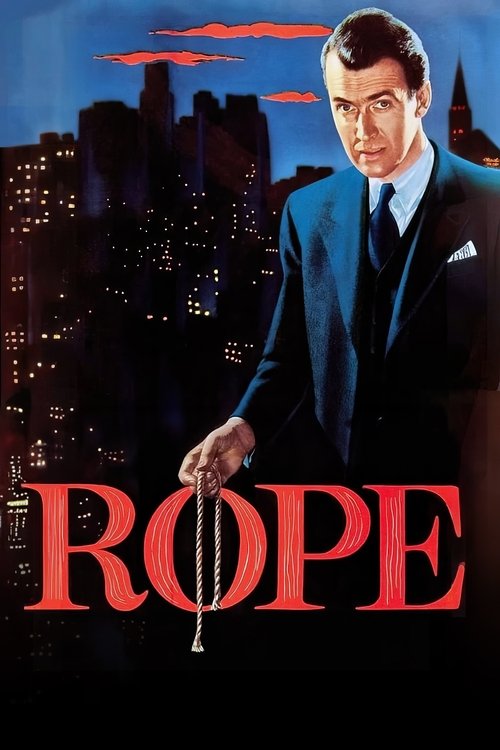
Title: Rope
Year: 1948
Director: Alfred Hitchcock
Writer: Arthur Laurents
Cast: John Dall (Brandon Shaw), Farley Granger (Phillip Morgan), James Stewart (Rupert Cadell), Joan Chandler (Janet Walker), Douglas Dick (Kenneth Lawrence),
Runtime: 81 min.
Synopsis: Two young men attempt to prove they committed the perfect murder by hosting a dinner party for the family of a classmate they just strangled to death.
Rating: 7.941/10